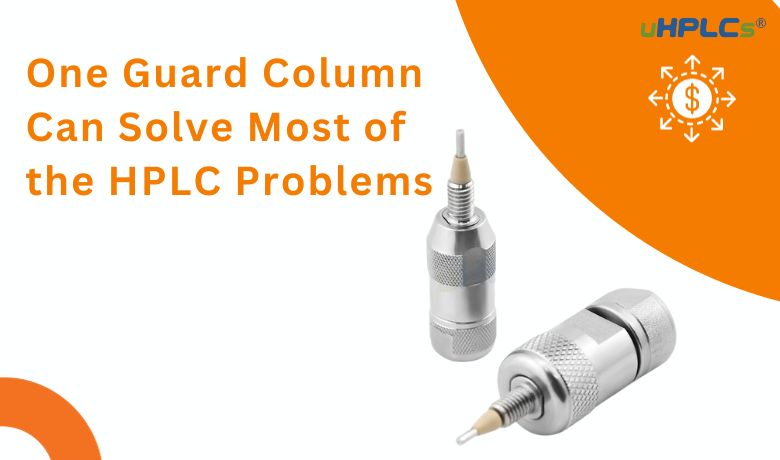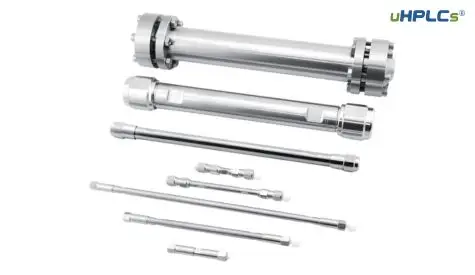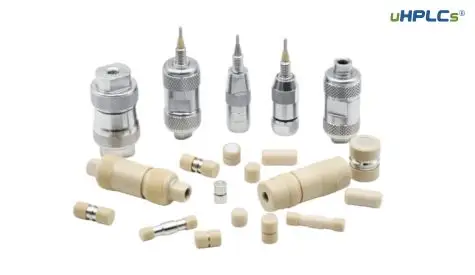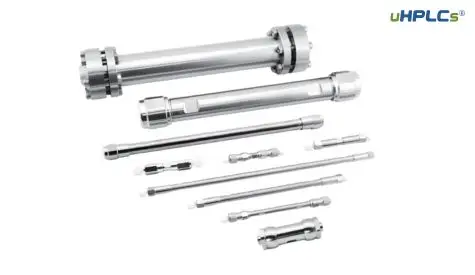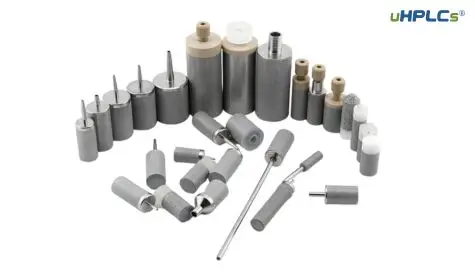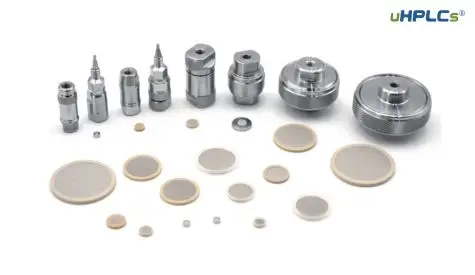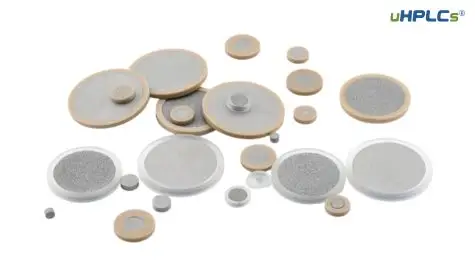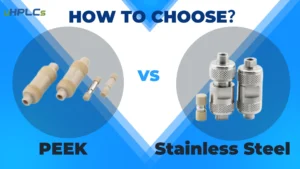I. Introduction
High-Performance Liquid Chromatography (HPLC) is a powerful tool used in analytical chemistry to separate, identify, and quantify components in a mixture.
Despite its capabilities, HPLC columns can face a range of problems that can affect their performance and the accuracy of results.
Common problems include contamination from the sample or the chromatographic system, leading to poor durability and a shortened column life.
II. The Role of a Guard Column in HPLC
A guard column is a crucial component in an HPLC system, serving to protect the analytical column from contamination and prolong its service life.
The guard column is located between the injector and the analytical column and has two main functions:
1. Retention of Insoluble Particles: The guard column traps insoluble particles that may be present in the sample or mobile phase, preventing them from reaching and potentially damaging the analytical column.
2. Adsorption of Impurities: The guard column also adsorbs impurities from the sample matrix, ensuring that only the target analytes reach the analytical column. This results in cleaner chromatograms and more accurate test results. Overall, the use of a guard column is essential in maintaining the integrity of the HPLC system and ensuring reliable and accurate analytical results.
III. Choosing the Right Guard Column
When selecting a guard column for your HPLC system, it’s crucial to consider several factors to ensure optimal performance and compatibility with your analytical column. Here are some key points to keep in mind:
-
- Packing Material: The packing material of the guard column should be the same as that of the analytical column to ensure 100% selectivity consistency.
-
- Specifications: The specifications of the guard column should match those of the analytical column, including the packing particle size and the inner diameter.
-
- Column Efficiency: The guard column should provide sufficient column efficiency for fine separation of analytes.
-
- Dead Volume: For fine separation or small inner diameter column separation, the dead volume of the guard column should be minimized.
- Pressure Resistance: If you are using a UHPLC column, consider the pressure resistance of the guard column to ensure it can handle the system’s demands.
IV. Installation and Use of the Guard Column
Proper installation and use of the guard column are critical to its effectiveness in protecting the analytical column. Here are some guidelines to follow:
1.Dedicated Column:
The guard column should be dedicated to a specific analysis to avoid cross-contamination of different samples.
2.Timely Replacement:
The guard column should be replaced when the peak theoretical column plate number drops by 15%, column pressure rises by 15%, or key separation drops by 15%.
3.Rinse Separately:
In case of strong contamination, the analytical column can be removed, and the guard column can be rinsed separately to remove contaminants more quickly.
By following these guidelines, you can ensure the optimal performance of your guard column and, by extension, your HPLC system as a whole.
V. Precautions for Using the Guard Column
When utilizing a guard column in your chromatographic system, there are certain precautions that should be observed to maintain the integrity of the column and ensure accurate results. These include:
1. Connection:
Ensure that the guard column and analytical column are connected with the shortest possible length of tubing, and that the interface is cut smoothly to minimize dead volume.
2.Flow Direction:
If you are using a ferrule type guard column, it is important to mark the liquid flow direction to avoid cross-contamination.
3.Cleaning:
If the guard column becomes contaminated, do not connect it to the analytical column for reverse cleaning. Instead, refer to the analytical column cleaning solvent for the appropriate cleaning procedure.
4.Column Core Replacement:
When replacing the column core, pay attention to whether there is a directional match between the core and the column sleeve, and avoid screwing it too tightly to prevent damage.
5.Ultrasonic Cleaning:
Ultrasonic cleaning of the guard column or column core is generally not recommended, as it may impact the packing surface modification.
VI. Maintaining Compatibility between Guard and Analytical Columns
To ensure the optimal performance of your chromatographic system, it is important to maintain compatibility between the guard column and the analytical column. This includes:
1.Cleaning and Equilibration:
Before use, the guard column should be cleaned and equilibrated with the mobile phase for a sufficient period of time.
2.Analytical Column Connection:
After cleaning and equilibration, the guard column should be connected to the analytical column.
3.Regular Inspection:
Regularly inspect the guard column for signs of wear and tear, and replace it as necessary to prevent contamination of the analytical column.
By following these steps, you can ensure that your guard column is functioning effectively and providing the necessary protection for your analytical column, ultimately leading to more accurate and reliable results.
Who is uHPLCs
Ultra-high-performance liquid chromatography (uHPLC) is a type of chromatography that utilizes very small particle sizes in the column packing material, high flow rates, and high pressure to achieve faster and more efficient separation of compounds. This technology allows for greater resolution and sensitivity compared to traditional HPLC systems.
Features of Guard Columns made for uHPLCs:
-
- High-Pressure Resistance: Guard columns made for uHPLCs are designed to withstand the high pressures used in ultra-high-performance liquid chromatography systems.
-
- Small Particle Size: Similar to the analytical columns in uHPLC systems, guard columns for uHPLCs also utilize small particle sizes to achieve efficient separation.
-
- Compatibility with uHPLC Systems: These guard columns are specifically designed to be compatible with uHPLC systems, ensuring optimal performance and protection for the analytical column.
-
- High Efficiency: The guard columns for uHPLCs are designed to be highly efficient in retaining insoluble particles and adsorbing impurities from the sample matrix.
-
- Prolonged Column Lifespan: By protecting the analytical column from contaminants, these guard columns help to prolong the lifespan of the column, reducing the need for frequent replacements.
-
- Ease of Replacement: Many guard columns for uHPLCs are designed to be easily replaceable, allowing for quick and easy maintenance.
-
- Compatibility with Various Sample Types: These guard columns are designed to be compatible with a wide range of sample types, ensuring versatility and flexibility in the analysis process.
If you have any questions or would like to learn more about how our uHPLC systems can benefit your research or laboratory, don’t hesitate to get in touch with us! We are here to assist you in finding the perfect solution for your needs. Simply send us an email at sales@uhplcs.com, and one of our knowledgeable representatives will get back to you as soon as possible. We look forward to hearing from you!

